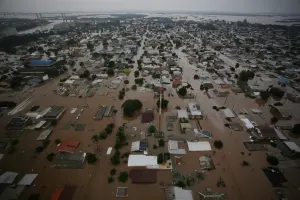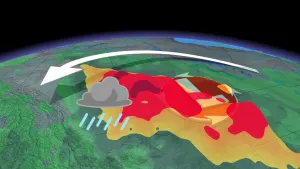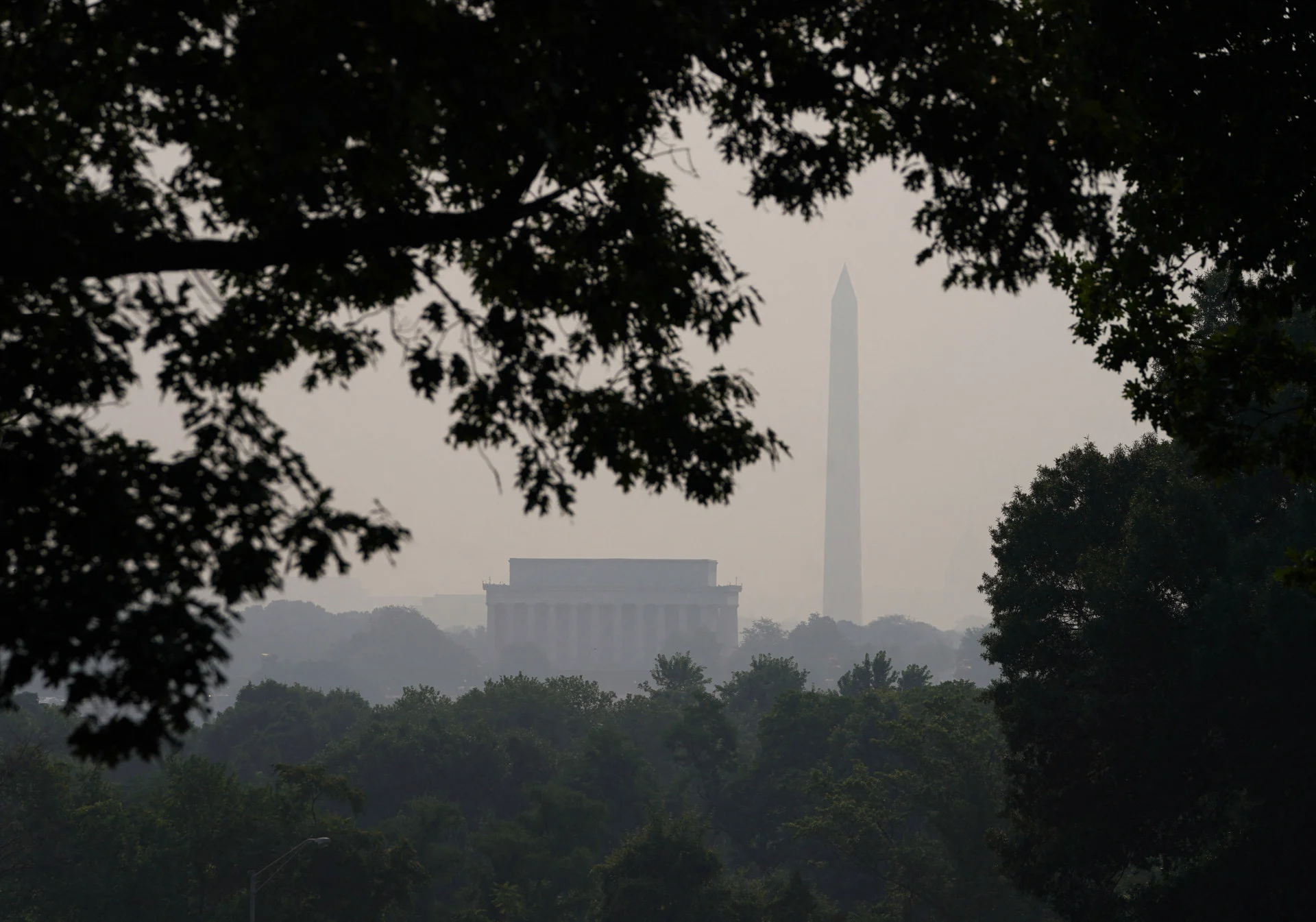
Air quality in parts of U.S. worst in 25 years, wildfires to blame
By Rich McKay
(Reuters) - About 44 million Americans live in cities or counties that received a failing grade for air quality, which has deteriorated to its worst in 25 years across a swath of the U.S., in part because of wildfires, a report released on Wednesday found.
The American Lung Association's annual "State of the Air" report said cities with the poorest quality air are concentrated in the West, including Los Angeles and San Bernardino in California and Phoenix, Arizona.
Among the places with the highest quality air are Bangor, Maine along with Honolulu, Hawaii, and Wilmington, North Carolina, where ocean breezes tend to disperse pollutants, the report's author Katherine Pruitt, a senior director with the association, said in an interview.
CANADA'S WILDFIRES: Visit The Weather Network's wildfire hub to keep up with the latest on the active start to wildfire season across Canada.
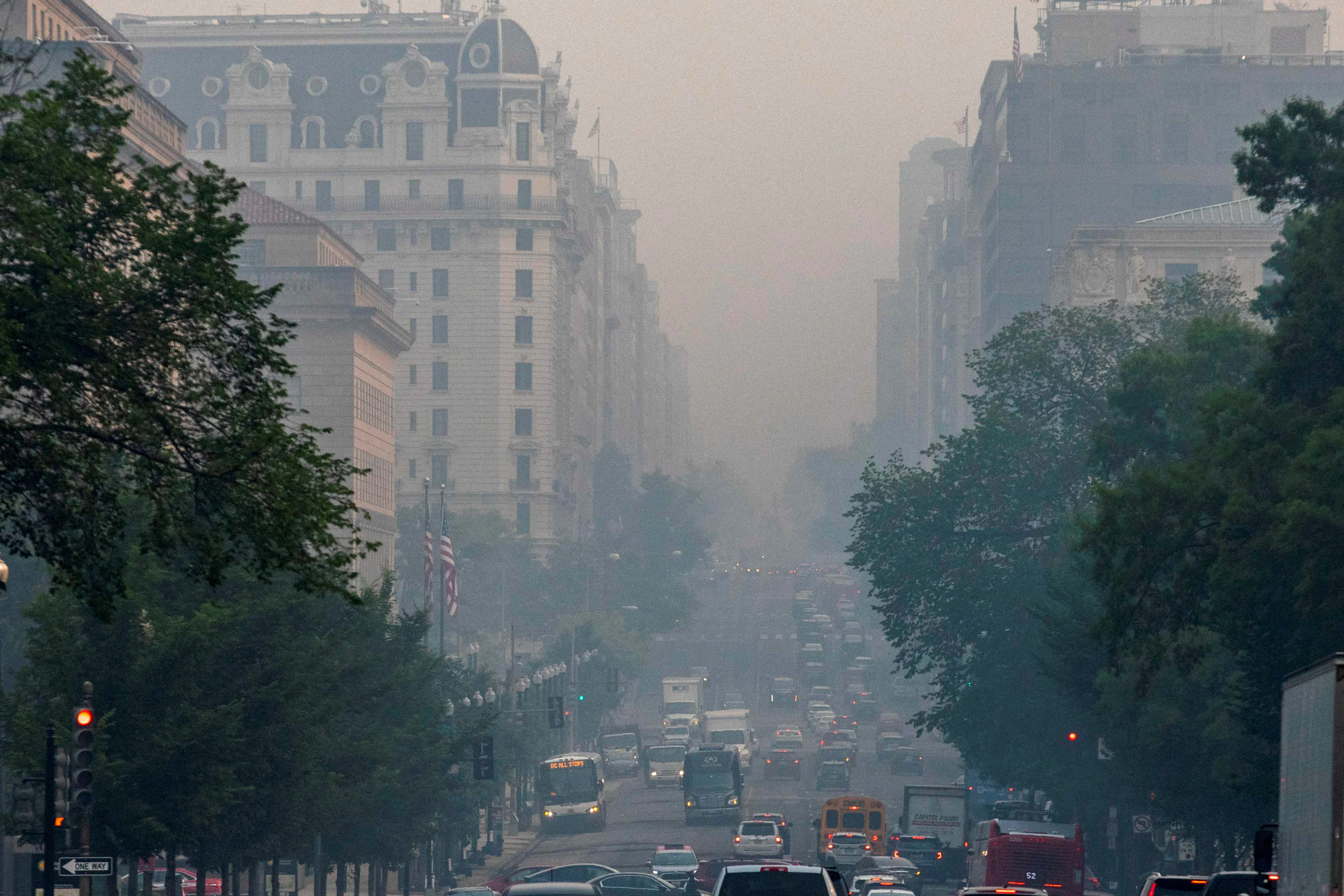
Downtown Washington, D.C. is seen shrouded in haze and smoke caused by wildfires in Canada, in Washington, U.S., June 8, 2023. REUTERS/Amanda Andrade-Rhoades/File Photo
"Dangerous pollution has serious health effects for all people, but especially for the vulnerable," she said.
The report was based on 2022 data - the most recent available - collected through thousands of air quality monitors set up by the U.S. Environmental Protection Agency.
Despite the deterioration in some areas, air quality in the U.S. is far better than it was before the Clean Air Act was passed in 1970, Pruitt said. Gone are the days where the Los Angeles skyline was often obscured by smog.
"Cars have gotten cleaner, fuel is cleaner, the dirtiest power plants have been shut down."
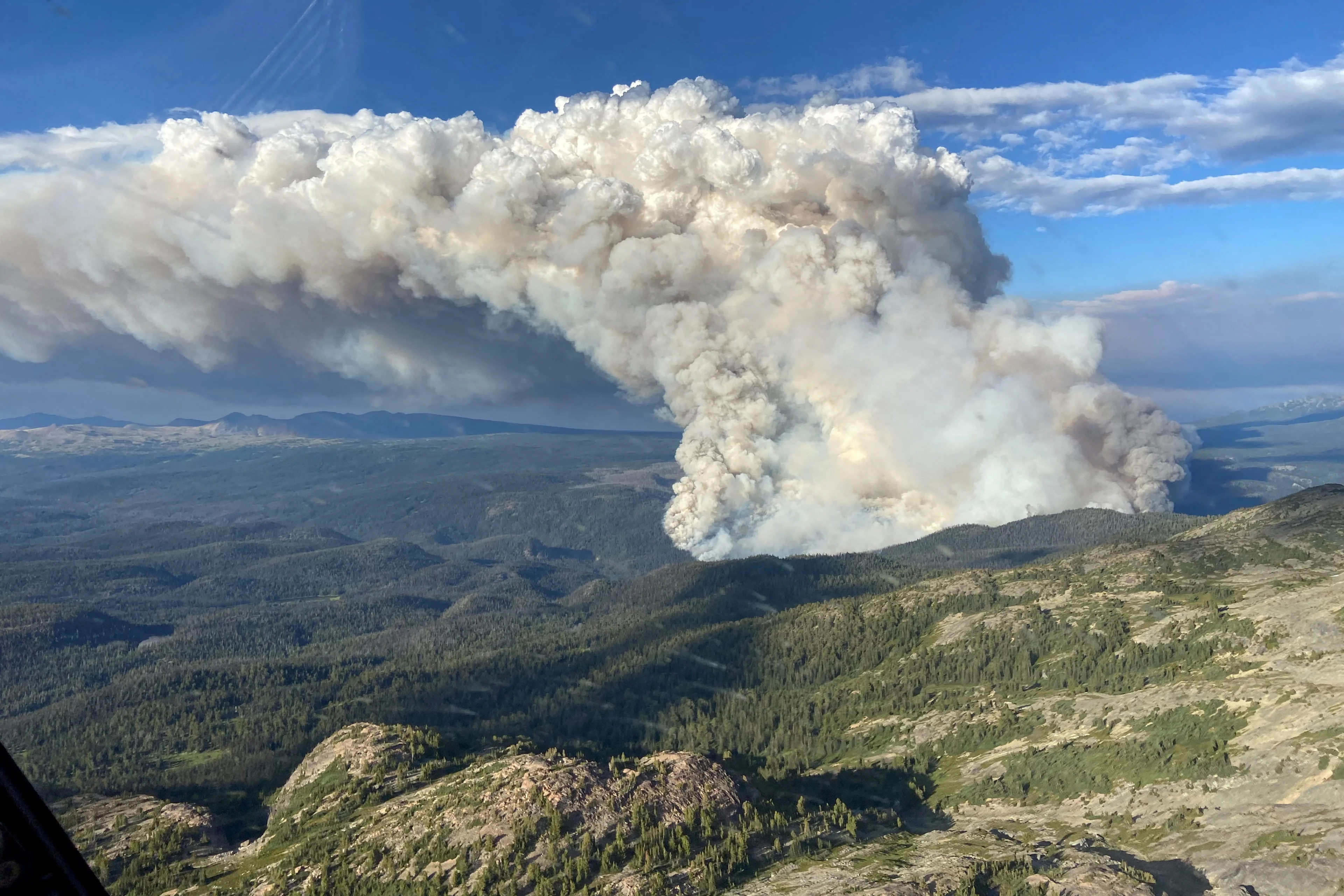
Smoke rises from the Young Creek wildfire (VA1735) in Tweedsmuir Provincial Park, west of Anahim Lake, British Columbia, Canada July 16, 2023. BC Wildfire Service/Handout via REUTERS/File Photo
But the steady improvement stalled about 2017, Pruitt said, partly because of smoke from wildfires, which have plagued California and other U.S. states, as well as Canada, in recent years.
Small particle pollution, or airborne soot, which can come from wildfire smoke as well as other sources, is the main source of the increased pollution, the report said.
SEE ALSO: Alberta enacts fire restriction as wildfire conditions grow extreme
In 2022, the year the report's data was collected, wildfires burned more than 7.5 million acres in the U.S., according to the government's National Centers for Environmental Information.
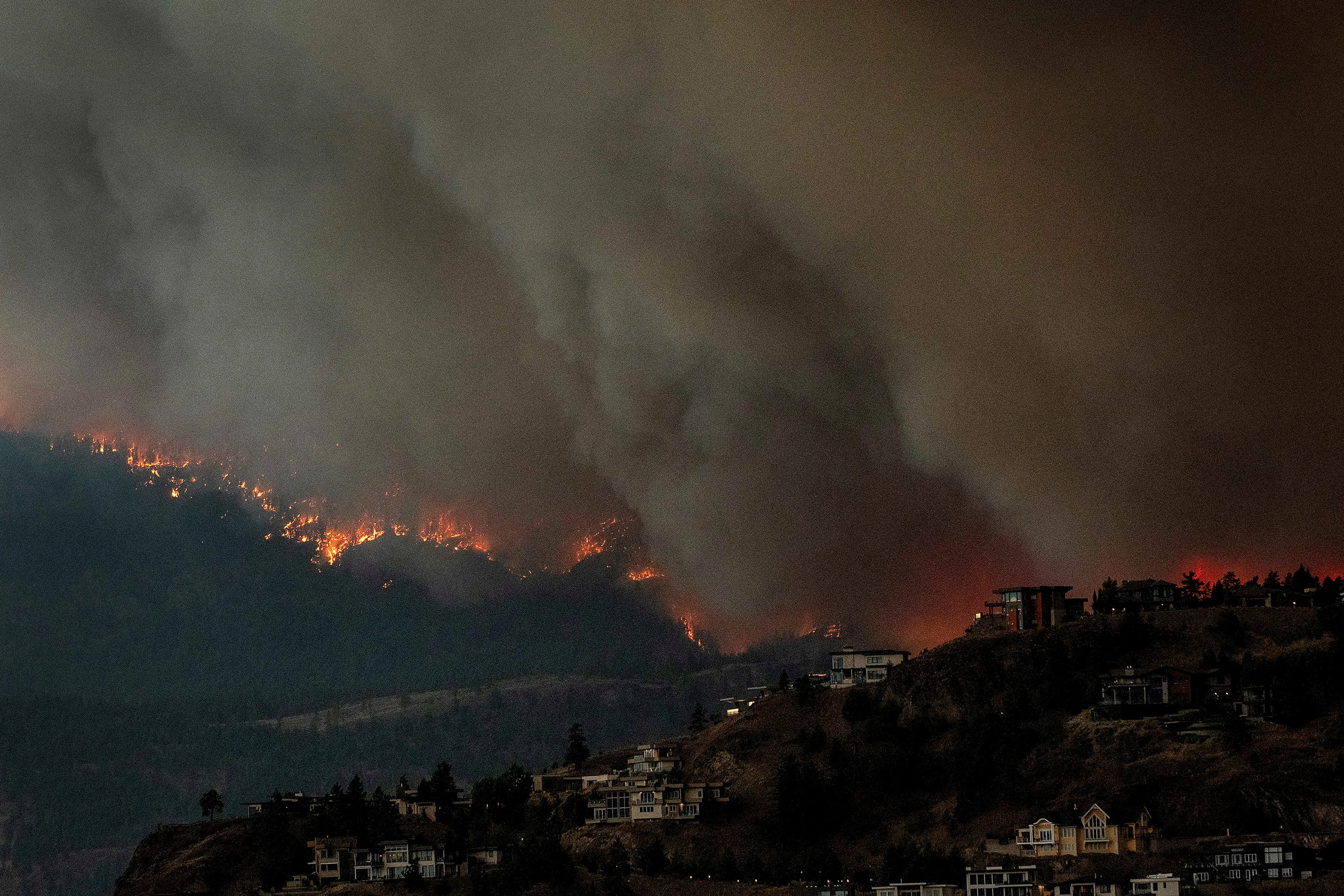
Smoke and flames from wildfires serve as a backdrop for homes across Okanagan Lake in West Kelowna, British Columbia, Canada, August 17, 2023. REUTERS/Dan Riedlhuber/File Photo
Last year, Canada suffered through its worst fire season on record, with more than 11.5 million acres. Smoke drifting south made the air in many U.S. and Canadian cities unhealthy to breathe during periods of last summer.
Small particle pollution "puts a strain on the heart and has been linked to heart attacks and strokes, not to mention lung cancer, low birth weights," Pruitt said. "The list goes on and on".
(Reporting by Rich McKay in Atlanta; Editing by Kevin Liffey)
Thumbnail: The Washington Monument and Lincoln Memorial are shrouded in smoky skies from the Canadian wildfires, bringing code red air quality conditions in Washington, U.S, June 29, 2023. REUTERS/Kevin Lamarque







